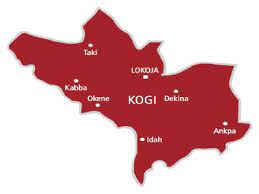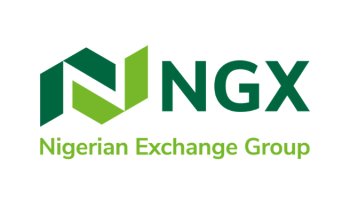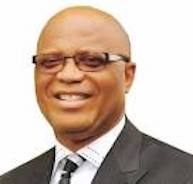Health
The State of E-Health in Nigeria: A Journalistic Exploration of Growth and Challenges
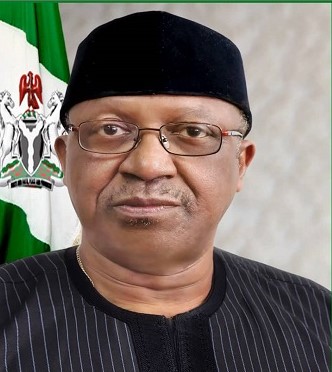
“When we first introduced electronic medical records (EMR) in the hospital, there was serious resentment by the staff, to the extent there were even attempts to burn down the system.
”That was the Clinical Director of Garki Hospital, Abuja, Nigeria, Dr.
Kenneth Ityoh, recalling the initial challenges that the Management faced when a new order of doing things was introduced.Those who tried to burn down the server to circumvent the deployment of the EMR system were “among those that were benefitting from the existing loopholes to steal the hospital’s funds.
Some staff were printing cash receipts and collecting money without remitting same to the hospital’s account,” he explained in an interview last week.Ityoh, a renowned Orthopedic Consultant, also recalled that within the first month of the introduction of the EMR, the hospital’s overhead cost dropped by about 80% because through the system, lots of costs were saved, as most of the financial leakages were blocked.
Benue State University Teaching Hospital, Makurdi
Investigation by NATIONAL ACCORD revealed that corruption among Nigerian health workers – both in the public and private sectors – constitutes one of the major challenges affecting the full-scale adoption of electronic delivery of health care services (also known as e-health) in the country.
Igbo Gabriel Alobo of the Mental Health Department, Jhpiego (an affiliate of John Hopkins University, Nigeria field office) and 5 others (Tolulope Soyannwo, Godwin Ukponwan, Simon Akogu, Abubakar Matthew Akpa and Kazeem Ayankola) had last year, studied perspectives on the pioneering work of Electronic Health Recording (EHR) system in Nigeria with the objective to determine health workers perception, challenges, motivation and satisfaction with EHR.
Although the evolution of this healthcare practice that is supported by electronic processes and communication dates back to 1999, according to Vincenzo Della Mea (a Professor of Medical Informatics at the University of Udine, Italy), it was only in October 2013 that Lagoon Hospitals made news as the first health institution in Nigeria to invest in an electronic system for keeping patients’ medical records.
According to findings, while the EMR system, which Lagoon hospitals deployed in 2013 can be regarded as a hospital and clinic management software that makes it possible to run core financial, clinical, and operational processes, the term “e-Health” refers not only to “Internet medicine” but also almost every activity related to computers and medicine.
Chief Operating Officer (COO) of the hospital, Dr. Naseem Mohammed, said during the launch of the system in 2013 that the EMR would allow Lagoon Hospitals to “create a unique database of all patient’s medical and critical information such as medical history, future appointments, current medications and allergies.”
Kogi State Specialist Hospital is one of the few health centers in Nigeria operating an integrated electronic health record system. The system makes it possible for ongoing consultations to be accessed by other sectors of the hospital, real-time. Kogi State Ministry of Health (SMOH) which regulates health practice in the state has an objective of strengthening the Health Management Information System (HMIS).
At the Garki Hospital Abuja, both Dr. Ityoh and the Head, Information Technology Unit, Mr. Stephen Ayoola Ojokuku, told NATIONAL ACCORD that e-Health was deployed in phases due to the high cost.
The National Hospital Abuja, touted as the best equipped medical facility in Nigeria, has also deployed an IT-based system to enhance operations. It is called health in a box, according to the hospital’s Chief Information Officer, Muhammad Gidado.

“We have the health in the box application which is good. It cuts across all major aspects of the hospital such as record visit, consultation, laboratory investigations and results and prescriptions, “Gidado told NATIONAL ACCORD this week.
In Benue State, Middle Belt region of Nigeria, both the state government and Benue State University Teaching Hospital (BSUTH), Makurdi have integrated ICT into health service delivery.
Commissioner for Health in the state, Dr Joseph Ngbea, told NATIONAL ACCORD last week that they have developed software and deployed health personnel to the local governments, provided them with laptops and tablets to enable them monitor and report some of the common health issues like cholera, Covid-19 and any outbreak in those localities to their Central Collecting System in Makurdi. “We have done so for other ailments including HIV/AIDS”, he said.
The Chief Medical Director of BSUTH, Dr Terrumun Swende, however, describes what the teaching hospital has for now as rudimentary. “For instance, in the NHIS clinic, we have deployed some of that. That is what we are using for our complex billing and a whole lot of things. If you come to our finance, we have some of those ICT solutions that help us in certain areas” he told NATIONAL ACCORD two weeks ago.
“With the Nigerian government’s declaration that the nation cannot afford one doctor to 600 patients’ ratio, many believe that only e-Health can come to the rescue, given its immense potentials as highlighted by experts”
According to the Minister of Labour and Employment, Chris Ngige, Nigeria is unlikely to meet the recommendation of the UN and WHO ratio of one doctor to 600 patients.
In the area of drugs, Aligs Pharmacy & Stores, Abuja, has introduced technology to its business to change the way people receive their medications by ensuring that residents of Nigeria’s capital do not have the need to be physically present at a pharmacy before they can get their drugs or consult a pharmacist or even see a doctor.
Managing Director of the venture, Mrs. Ngozi James, told NATIONAL ACCORD the objective was to expand the role of the pharmacy as a primary care provider by giving Abuja residents easy access to drugs through online shopping and online drug information services.
This is, however, coming 10 years after the Lagos University Teaching Hospital (LUTH), in collaboration with Pfizer, introduced e-Pharmacy services in Nigeria with an installed Health Information System (HIS).
Country Manager, Pfizer, Dr. Enrico Liggeri, had explained during the official launch of the facility in 2011 that Nigeria was selected as the target country for the e-Pharmacy pilot project given the concentration of the largest high-risk patient populations as well as its complex and overstretched healthcare system.
At the Princess Medical Centre, Port Harcourt, Rivers State, South-south Nigeria, where e-health is practiced, the Founder and Chairman, Princess Medical Centre, Dr Emi Membere-Otaji, told NATIONAL ACCORD, “we have automated systems that connect to some of the best medical centres in the world especially Dubai and the UK. This way, our patients get same standards they would have got if they flew out.”
Benefits of E-Health
ICT has had a very positive development in most sectors of human endeavors, including the health sector, and as observed by Dr Swende of BSUTH, Makurdi, there is a wide range of applications of ICT that can enhance healthcare delivery.
For instance, he said, “if we were in a more developed country, booking to see a doctor can be done online as long as it is not an emergency situation. When you come to the hospital setting proper, one of the major advantages of ICT is what is called EMR where people can walk into the hospital just the way you walk into a bank and transact their business using credit/debit card or ATM card. This can also be done in the hospital too when you come in, as far as you are registered, you do not need to join long queues to get the physical paper records.”
According to Ojokuku, the analysis of data from an EMR can alert the medical personnel of rise of communicable disease cases based on demographics and if residential address of patients they are seeing come from high-risk areas.
Gidado of the National Hospital Abuja says e-Health has been very beneficial in the sense that “the system protects the hospital from losing money from likely corrupt practices and it helps the patients from getting victimized also.”
Dr. Swende believes that if the entire country is running with ICT or e-records, when one travels to any part of the country, such person’s medical records can be easily accessed on demand.
Yet another benefit of e-Health can be found in the aspect of e-consultations, where the patient is in a distant town and the medic is giving treatment from a very different location through video conference call.
Garki Hospital Abuja is a good example of how e-Health can enhance efficiency in any aspect of the hospital with proper deployment of ICT software, including management of human resources and also payment of salaries, all of which can be very simple and straightforward, instead of the long tedious method they deploy presently.
The inventory management in stores can also be made easy with e-Health. As both Dr. Ityoh and Dr Swende explained to NATIONAL ACCORD, as you buy like 3000 drugs, you save them up in the system and so with each one you dispense, the system tells you what is left until you reach a critical level where the computer will remind you that this drug will be out of stock soon hence, you have to re-order. The same software can help you take note of expiry dates of each drug you have over the counter like some of these big hospitals.
Challenges of E-Health in Nigeria
While Alobo identified the challenges faced in the deployment of e-Health in Nigeria as low manpower, infrastructure, inadequate financing, inadequate political will and poor knowledge of computers and IT for health recording, there are other little but highly significant obstacles to the spread of e-Health practice in the country.
Doctors and other Health Workers
Dr. Ngbea believes that the challenges currently being faced in the deployment of e-Health in Nigeria are surmountable with time, there are, however, several challenges, the first being even where the ICT solution is on ground, not many doctors and other health workers are able to access or apply them.
Outlining the challenges of e-Health, Alobo said that electronic health record “falls short of being accepted by all cadres of the medical profession,” adding that one of these is “the charting of patients’ information by nurses and the inability to describe peculiar clinical findings on ready-made templates.”
Finance
Findings by NATIONAL ACCORD showed that most of the challenges facing e-Health in Nigeria border on finance because the whole process is capital-intensive.
For instance, after installing the EMR software, the management of BSUTH Makurdi realized that most of the staff on ground were not ICT compliant and it meant doing a lot of training to get them on board.
“We needed to make substantial expenses especially at the initial stage to be able to move,” according to Dr. Swende, who mentioned the need to deploy “either tablets, desk tops or laptops at every point pen and paper were used, and they come with a huge cost”.
Garki Hospital Abuja, as learnt, invested about N30 million (about $72,000) for software development or licenses and support, then probably between close to N15million (about $36,000) for the infrastructure.
This explains the inability of the Federal Medical Centre, Makurdi to start consultation with its patients on the portal it created, according to the Chief Medical Director, Dr Peteru Suega Inunduh.
Poor Internet Connectivity
While Alobo was the first to identify internet services and power outages as some of the problems encountered in the attempt to use the electronic health record, Dr Inunduh of the FMC, Makurdi also expressed concern about the poor connectivity.
Manpower
One of the major challenges faced by National Hospital Abuja was manpower. According to Gidado, “it was pretty difficult getting the right manpower and deploying relevant system in an organization.”
Benue State, according to Dr. Ngbea, also faced the same challenge as National Hospital. “First, many of the health personnel we have are not computer literate. So embracing ICT has been a challenge” said the Commissioner for Health.
The story is the same at the BSUTH Makurdi where Dr. Swende recalled that after managing to install the EMR software, the hospital got stuck. “Part of the challenges we had was one, most of the staff on ground were not ICT compliant”.
“FMC too has the challenge of low ICT compliance level by staff. However, we are carrying regular in-house training for practitioners to address the challenge,” said Dr Inunduh.
Corruption
Another challenge is that of stealing. In a number of the healthcare centres visited, there were complaints that when the needed tools for e-health are provided, some people use it for themselves like selling the gadgets or use it for other personal purposes.
A staff in the Accounts unit of one of the Federal Medical Centres who spoke on condition of anonymity for fear of victimization, intimated NATIONAL ACCORD last week that funds budgeted every year for deployment of EMR and other e-Health components have always been “diverted and shared by certain people in this hospital” It was not clear how many government health institutions are in this same mess.
Epileptic Power Supply
Power outages in Nigeria have remained one major problem encountered by many sectors in the country, particularly manufacturing, health and food processing.
Disposition of Patients
The disposition of patients was another challenge encountered by National Hospital Abuja when the IT-based system was deployed. As Gidado recalls, it was initially not easy “getting the target audience to accept the new system.”
Possible Solutions
Dr. Ngbea suggests that two things need to be done, one of which Benue State is already doing. The first step is “constant training and retraining of staff” while the other is “public enlightenment so that people will change their disposition towards government property because as the Commissioner, I cannot always be on ground to effectively monitor the situation”
The training, according to the Chairman of the Medical Advisory Committee (CMAC) of the hospital, Dr Sa’id Abubakar, was to make them be compliant with the electronic health (e-health) practice for service delivery.
In the oil producing Rivers State (Niger Delta region), the consulting firm, CINFORES, led by Ibifuro Asawo, working to automate the services of the Government in a scheme called e-Governance policy, told NATIONAL ACCORD last week that healthcare delivery would be automated, adding that the early stage is to get the transactions and financials captured on digital platforms.
The author is the Editor-in-Chief, National Accord
Health
Kwara Govt. Urges residents to Prioritize Oral Hygiene
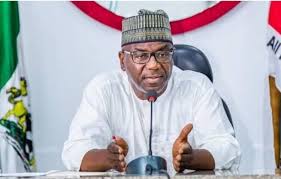
The Kwara State Government has urged residents to prioritize oral hygiene by maintaining the health of the teeth, gums, and other tissues in the mouth.
Dr Amina El-Imam, the Kwara State Commissioner for Health, made the call on Wednesday in Ilorin during the opening ceremony of a three-day free oral health outreach.
The outreach was organized by the state government in partnership with Pharma Deko PLC.
Represented by the Director of Public Health, Dr Oluwatosin Fakayode, the commissioner described oral health as a vital but often overlooked aspect of overall healthcare.
She reaffirmed the government’s commitment to improving oral health across the state, stressing that it was a key component of general wellbeing.
“Oral health is the cornerstone of overall health, yet it is often neglected.
“Poor oral hygiene contributes to several non-communicable diseases, though its effects are gradual and often unnoticed until they become serious,” she said.
El-Imam commended the recent renovation and equipping of the state’s dental clinic and encouraged residents to take full advantage of the outreach by accessing free dental checks and receiving professional guidance on oral hygiene.
Also speaking, the Managing Director of Pharma Deko PLC, Mr Ishola Olukayode, expressed the company’s commitment to supporting oral health in Nigeria.
He warned that many people unknowingly use harmful substances on their teeth due to a lack of awareness, putting their health at risk.
Olukayode stressed that oral hygiene extended beyond brushing, highlighting the importance of regular professional check-ups and community education.
Delivering a lecture at the event, Deputy Director of Public Health, Dr Kasali Ajao, noted that brushing alone addressed only about 40 per cent of oral hygiene needs.
He recommended professional procedures such as scaling and polishing at least twice a year for comprehensive oral care.(NAN)
Health
Nigeria Requires N2.2trn to Eliminate Cervical Cancer by 2030 – Prof. Adewole

Prof. Isaac Adewole, Chairman of the National Task Force on Cervical Cancer Elimination (NTF-CCE), says Nigeria will require N2.2 trillion to implement comprehensive cervical cancer interventions between 2026 and 2030.
Adewole, a former Minister of Health, made this known on Tuesday in Abuja during the launch of the Partnership to Eliminate Cervical Cancer in Nigeria (PECCiN), an initiative of the NTF-CCE.
The initiative, launched at the State House by the First Lady, Sen.
Oluremi Tinubu, aims to accelerate Nigeria’s achievement of the World Health Organisation’s (WHO) 90-70-90 targets for cervical cancer elimination.reports that PECCiN seeks to catalyze multi-sectoral efforts to prevent, screen, and treat cervical cancer through sustained coordination, resource mobilization, and scale-up of service delivery.
According to Adewole, the interventions are grouped into three categories: primary prevention, secondary prevention, and tertiary treatment.
He explained that the Human Papilloma Virus (HPV) vaccination programme will be delivered through fixed sessions at health facilities and outreach-based immunisation campaigns.
“The total direct implementation cost over the five years is estimated at N387.52 billion,” he said.
“Including administrative and supervisory costs, the total cost of HPV vaccination will amount to N426.28 billion.”
He said cervical cancer screening over the same period is estimated to cost N351 billion, targeting 14.4 million women.
On tertiary treatment, Adewole noted that nearly 300,000 women will require care for invasive cervical cancer between 2026 and 2030.
“The country is projected to spend approximately N1.42 trillion on treatment, with the cost per patient dropping from N8.7 million in 2026 to N4.1 million by 2030,” he added.
In spite of other competing priorities, he urged investment in cervical cancer elimination due to its high return on investment.
“We seek your commitment and support to implement robust cervical cancer elimination interventions in Nigeria.
“This will ensure that every woman is financially protected throughout her life and no eligible adolescent is left behind in HPV vaccination.”
Dr Muyi Aina, Executive Director of the National Primary Health Care Development Agency (NPHCDA), said the Federal Government launched the HPV vaccine campaign on Oct. 24, 2023, targeting girls aged 9 to 14.
He announced that 14 million girls had already received the vaccine.
“This milestone is unprecedented globally and was achieved through strong leadership from President Bola Tinubu, the support of the First Lady, and collaboration across ministries and communities.
“The media also played a key role in spreading awareness and engaging civil society.”
Aina reaffirmed the agency’s commitment to sustaining the programme, stating that the HPV vaccine has been incorporated into the routine immunisation schedule and that primary healthcare centres are being revitalised to support service delivery.
Prof. Usman Aliyu, Director-General of the National Institute for Cancer Research and Treatment (NICRAT), described cervical cancer as a serious burden affecting mothers, sisters, caregivers, and peers across communities.
He said the growing burden prompted the development of the National Strategic Plan for the Prevention and Control of Cervical Cancer (2023–2037).
“This plan, reflecting best practices and local realities, serves as our national roadmap for cervical cancer elimination,” he said.
Aliyu added that NICRAT has constituted a national taskforce comprising experts and stakeholders to drive implementation.
He also highlighted efforts to promote innovative research, harmonise treatment protocols, and expand culturally sensitive awareness and screening campaigns.
The event featured the presentation of the National Cervical Cancer Elimination Plan and the unveiling of the PECCiN partnership logo. (NAN)
Health
Otu’s Wife Champions Healthcare Access for 500 Elderly Citizens

The Wife of the Cross River Governor, Mrs Eyoanwan Otu, has sponsored the enrollment of 500 senior citizens, aged 70 and above, into the Cross River Health Insurance Scheme.
The gesture, which covers the premiums of the elderly citizens for two years, targeted the vulnerable senior citizens in the 18 Local Government Areas of the state.
The Director General of the agency, Mr Godwin Iyala, described the initiative as “a significant milestone in the first lady’s humanitarian outreach”.
According to Iyala, the first lady had already made full financial commitment to cover the 500 beneficiaries for the next two years.
“This initiative prioritises our elderly population, many of whom had spent decades serving their families and communities.
“Her Excellency has once again demonstrated her deep sense of empathy and leadership.
“The ripple effect of this act is far-reaching because when the aged are cared for, families are relieved, and the moral fabric of our society is strengthened,” he said.
He commended Otu for the initiative, describing it as a lifeline for elderly citizens, particularly those in the rural areas, who face significant barriers in accessing healthcare.
Iyala stated that the Agency would begin immediate enrollment of the beneficiaries into the health insurance database, to ensure they begin to enjoy prompt and uninterrupted access to medical services.
He further said that the initiative was expected to significantly ease the burden of healthcare cost to elderly citizens, offering them a renewed sense of dignity and security in their twilight years. (NAN)









